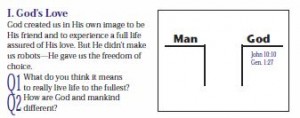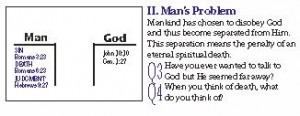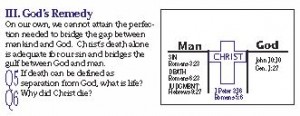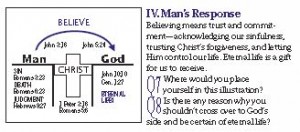Concise answer: Absolutely yes! There is one key verse Rev 3:10 in conjunction with three main passages: 1 Thess. 4:13-18, John 14.1-4, and 1 Cor. 15:50-58, which all proclaim the rapture of the Church. Moreover, the driving result of the belief in the imminent Rapture of the Church is the need to fulfill the Great Commission. Those who hold this teaching make the snatching of the lost and dying from the very flames of hell their life’s quest. A church, which does not maintain this belief quickly, substitutes the pursuit of “good works” for the necessity of saving the lost.
Detailed answer: Belief in the Pre-Millennial, Pre-Tribulation Rapture accomplishes two things: one, it drives the church to maintain an expectancy for the Lord’s soon return for His Church; and two, it drives the church to fulfill the Great Commission that it was given. This eager expectancy on the part of the church for the imminent return of Christ is taught in many verses:
John 14.2-3 “In My Father’s house are many dwelling places; if it were not so, I would have told you; for I go to prepare a place for you. If I go and prepare a place for you, I will come again and receive you to Myself, that where I am, there you may be also.”
Acts 1.11 “They also said, “Men of Galilee, why do you stand looking into the sky? This Jesus, who has been taken up from you into heaven, will come in just the same way as you have watched Him go into heaven.”
1 Cor. 1.7 “so that you are not lacking in any gift, awaiting eagerly the revelation of our Lord Jesus Christ”
1 Cor. 15.51-52 Now I say this, brethren, that flesh and blood cannot inherit the kingdom of God; nor does the perishable inherit the imperishable. Behold, I tell you a mystery; we will not all sleep, but we will all be changed”
Phil. 3.20 “For our citizenship is in heaven, from which also we eagerly wait for a Savior, the Lord Jesus Christ”
Col. 3.4 “When Christ, who is our life, is revealed, then you also will be revealed with Him in glory.”
1 Thess. 1.10 “and to wait for His Son from heaven, whom He raised from the dead, that is Jesus, who rescues us from the wrath to come.”
1 Tim. 6.14 “that you keep the commandment without stain or reproach until the appearing of our Lord Jesus Christ,”
Titus 2.13 “looking for the blessed hope and the appearing of the glory of our great God and Savior, Christ Jesus,”
Heb. 9.28 “so Christ also, having been offered once to bear the sins of many, will appear a second time for salvation without reference to sin, to those who eagerly await Him.”
James 5.8 “You too be patient; strengthen your hearts, for the coming of the Lord is near.”
While these verses address this blessed hope, the following arguments strengthen this position. First, the Bible mentions no needed sign to take place before the rapture. Second, meaning of immanency has the idea of certainty but not immediacy (i.e., soon but that it must happen).
Before we turn our attention to the three main passages which teach the Pre-Millennial, Pre-Tribulation Rapture of the church: 1 Thess. 4:13-18, John 14.1-4, and 1 Cor. 15:50-58, we will examine Rev. 3:10:
“Because you have kept the word of My perseverance, I also will keep you from the hour of testing, that hour which is about to come upon the whole world, to test those who dwell on the earth.”
To begin with the word church (ekklesia) occurs only one time after the first three chapters of Revelation (Rev. 22:16). It occurs nineteen times within the first three chapters. In chapter 4:1 we have a beautiful picture of the church being raptured is illustrated by John being called to heaven. The church is never pictured as on earth but only as being in heaven in chapters 4-18. The absolute silence of those chapters regarding the church is deafening. In Revelation 19.7 she is referred to as the Bride of Christ and then in 22:16 she is then for the last time called the church.
Next the promise “I also will keep you from the hour of testing” uses the words “ tereo ek” for to keep, preserve, protect out of– the hour of testing. Furthermore, the Lord promises to keep them from the very time of the testing which is to come upon the whole world. The way in which He will do this is by the rapture of the church. Also the article “the” occurs before both the hour and from the testing; therefore, this confirms a specific test coming upon the whole world.
Now we will turn our attention upon the three clear passages.
1. 1 Thess. 4:13-18:
But we do not want you to be uninformed, brethren, about those who are asleep, so that you will not grieve as do the rest who have no hope. For if we believe that Jesus died and rose again, even so God will bring with Him those who have fallen asleep in Jesus. For this we say to you by the word of the Lord, that we, who are alive and remain until the coming of the Lord, will not precede those who have fallen asleep. For the Lord Himself will descend from heaven with a shout, with the voice of the archangel and with the trumpet of God, and the dead in Christ will rise first. Then we who are alive and remain will be caught up together with them in the clouds to meet the Lord in the air, and so we shall always be with the Lord. Therefore comfort one another with these words.
1 Thess. 1:10 states: “and to wait for His Son from heaven, whom He raised from the dead, that is Jesus, who rescues us from the wrath to come.” All believers are rescued from the wrath to come. This is echoed in 1 Thess. 5:9 as well: “For God has not destined us for wrath, but for obtaining salvation through our Lord Jesus Christ.” So the church is not destined for the wrath to come, “the Great Tribulation” to come. In 1 Cor. 15:50-58, Paul is endeavoring to comfort those who have lost believing friends and family to physical death (.13). The encouragement he gives is based on the fact of the resurrection of Christ (.14). The first to join Christ in the air at His coming are the dead in Christ and then we who are alive (.15). The Lord Himself gave this to Paul (this mystery according to 1 Cor. 15.50-51) (.16). The Lord Himself will descend from heaven (.16a). If one considers John 14.3, he realizes that the place, where Jesus Himself was going to and the place He would take the church, was to heaven. And according to 1 Cor. 15: 53: “For this perishable must put on the imperishable, and this mortal must put on immortality (translated).” The living must have their earthly bodies changed. Once this occurs then they will be “caught up together with them in the clouds to meet the Lord in the air;” the word s “caught up” is the word “harpazo” to be snatched or seized suddenly. It is this word through the Latin that the word rapture is derived.
It is this event: going with any who have died in Christ to meet the Lord in the air and to always be with Him that produces comfort (.18).
One of the greatest encouragements that these believers have is that while they may face tribulation they will not go through “the tribulation,” “the Day of the Lord.” In the very next section 1 Thess. 5:1-10 Paul who introduces a new subject with “peri de” “now as” to the Day of the Lord.
Robert Dean Jr. provides the following fifteen differences between the Rapture and the Second Coming:
• At the Rapture Jesus comes for His own [church age believers], at the Second Coming Jesus comes with His own [church age believers].
• At the time of the Rapture Jesus comes only in the air (1 Thessalonians 4:17), at the Second Coming Jesus comes to the earth (Revelation 19:11-18).
• At the Rapture, living saints receive resurrection bodies (1 Thessalonians 4:17), at the Second Coming, no living believers receive resurrection bodies.
• At the Rapture translated saints go to heaven, at the Second Coming translated saints go to earth.
• At the Rapture, Jesus comes in the air and returns to heaven (John 14:3), at the Second Coming Jesus establishes His kingdom on the earth.
• At the Rapture, there is no judgment on the unsaved upon the earth, the Second Coming Concludes God’s judgments on the earth dwellers.
• At the Rapture Christ claims His bride, at the Second Coming Christ comes with His Bride.
• The Rapture delivers the saints from the wrath to come, the Second Coming concludes the wrath to come (Daniel’s seventieth week).
• The Rapture is imminent and its proximity is not announced by any prophetic signs; the Second Coming is preceded by specific, recognizable signs.
• The Rapture involves only the saved of the church age, the Second Coming involves all on the earth. The saved of the Old Testament are resurrected after the Second Coming.
• The Rapture is not mentioned in the Old Testament, but the Second Coming is predicted often in the Old Testament.
• Satan is not mentioned in reference to the Rapture, but after the Second Coming, Satan is bound (Revelation 20:2–3).
• No prophecy must be fulfilled before the Rapture, many prophecies must be fulfilled before the Second Coming.
• At the Rapture only those who meet Him in the air will see Him, at the Second Coming every eye shall see Him.
• The Rapture is called the Day of Christ (2 Thessalonians 2:2; Philippians 1:10; 2:16), the Second Coming comes as part of the Day of the Lord (Joel 2:31–32; 1 Thessalonians
5:2). (Robert Dean Jr. “Three Foundational Rapture Passages,” http://www.pre-trib.org/data/pdf/Dean-theThreeMajorRapture.pdf.)
2. John 14.1-4.
We will examine the Upper Room Discourse significance (John 13-17), the congruity with the Jewish marriage analogy, and the parallels with 1 Thess. 4:13-18; each provide the necessary support for the Pre-Millennial, Pre-Tribulation Rapture of the church. Next we will examine the details of the passage.
To begin with the Upper Room Discourse provide in seed form the following New Testament truths:
The believers’ oneness in Christ (John 17:20-23; Eph 2:11-22), the Spirit’s permanent residence in the believer (John 14:16; Eph 4:30), the believer’s union with Christ (John 14:20; Gal 2:20;Rom 6:1-14), the believer’s opposition to the world (John 15:18-19; Jas 4:4; 1 John 2:15-17), the necessity for the believer to stay in fellowship with Christ (John13:10; 15:1-17; 1John 1:5-7, 9), abiding in Christ as a prerequisite for fruit bearing (John 15:1-7; Phil 4:13), the believer’s election (John 15:16; Eph 1:4); Christ as the ultimate model of sacrificial living and service (John 13:1-20; Phil 2:5-11), the necessity of divine discipline in the believer’s life (John 15:2; Heb 12:5-11), Satan as the god of this age (John 12:31; 14:30; 16:11; 2 Cor 4:4; Eph 2:2), the defeat of Satan at the cross (John 12:31; 16:11; Col 2:15; Heb 2:14), the Spirit as the inspirer of all Scripture (John 14:26; 16:13; 2 Tim 3:16; 2 Pet 1:20-21), the Spirit as the illuminator of all Scripture (John 14:26; 16:13; 1 Cor 2:14; 1 John 2:20, 27), Christ’s provision of peace in the midst of adversity (John 14:27; Phil 4:7), the necessity of the Spirit’s convicting ministry as a prerequisite for salvation (John 16:7-11; 1 Cor 2:14; 2 Cor 4:4), the normalcy of tribulations in the present age (John 16:33; Jas 1:2-4), the believer as the ultimate overcomer (John 16:33; 1 John 4:4; 5:4-5), Christ’s present session at the Father’s righthand (John 14:12-14; 17:5; Heb 8:1; 10:12-13), the power of prayer (John 14:12-14; Eph 6:18- 20; Jas 5:16), the inerrancy of Scripture (John 17:17; 2 Tim 3:16), and the disclosure of Eschatology (John 16:13; 2 Thess 2:1-12). (See Andy Woods paper “Jesus and the Rapture,” http://www.pre-trib.org/data/pdf/woods-JesusandtheRapture.pdf. Where he gives an exhaustive treatment to Jesus and the Rapture).
The Upper Room Discourse provides eschatological setting. It is sandwiched between the Christ promise of Matt. 26:29 (the promise of drinking from the fruit of the vine in the kingdom) and the Seder celebration of Psalm 118:26 (Blessed is He that comes in the name of the Lord).
The Jewish Marriage Analogy. Woods gives seven aspects to this relationship:
- the groom travels to the home of the bride’s groom (Christ becoming flesh paying the betrothal price with His death on the Cross 1 Cor. 6:19-20);
- During the betrothal period, the groom is temporary separated from the bride (the preparing of temporary dwelling for the church, John 14:2);
- At an unknown time the groom returns to the bride’s home 1 Thess. 4.16-17;
- The bridal party returns to the groom’s father’s home (equivalent to the raptured church being taken to heaven the home of God;
- The consummation of the marriage where the Bride is now formally married to Him;
- The groom emerges from the marital chamber announcing to the wedding party the reality of this new physical union (this step is equivalent of the church being with Christ during the seven year tribulation period (Dan. 9:27);
- The groom and the bride emerge from the marital chamber unveiled (this is equivalent to the Second Coming of Christ with the church).
Textual Details of John 14.1-4
“Do not let your heart be troubled; believe in God, believe also in Me. In My Father’s house are many dwelling places; if it were not so, I would have told you; for I go to prepare a place for you. If I go and prepare a place for you, I will come again and receive you to Myself, that where I am, there you may be also. And you know the way where I am going.”
Jesus has returned to heaven to prepare temporary dwelling places for the believer (14:2). He then adds that He will come again. The word “again” (palin) signifies that He will come back in the same manner. Acts 1:9-11 provides that manner. The word “to” (and receive you to Myself) is the word (pros) with the accusative denotes movement towards something; here, movement towards heaven. Next, in the phrase that where I am, there you may be also the word “where” refers to a specific location in the present and gives the designation of place (i.e. heaven). Lastly, the phrase where I am going has been used constantly throughout the gospel as the return of Jesus to the Father. In summary Woods adds:
What all of these textual details reveal is that Christ would return through His
Ascension to His Father’s heavenly abode. While there, He would prepare temporary dwellings for His disciples. However, He would also return for His disciples at a future time. His return would be just as personal as was His First Coming and Ascension. Upon His return He would physically take believers to be with Him by spatially drawing them to Himself. The ultimate purpose of this event is so that believers could dwell in their prepared, temporal, heavenly places as well as be with Christ in the specific heavenly place where He is. All of this information would serve as a tremendous comfort to the disciples who were greatly troubled over the announcement over His soon departure (John 13:1). In fact, John 14:1 makes it clear that Christ unfolded the reality of this glorious event for the specific purpose of comforting His distressed disciples. Of course, such revelation of this phase of Christ’s return represents mystery truth never before disclosed. Its description is out of harmony with any past revelation
concerning the Messiah’s Second Advent. (Woods also furnishes sthe following early Ante-nicene church fathers who gave evidence of eschatological interpretation of John 14.1-4—Papias (ca 110), Irenaeus (ca. 130-202), Tertullian (ca. 196-212); Origen (ca. 182-251), and Cyprian (ca. 258)).
3. 1 Cor. 15:50-58
Paul in this chapter makes the following points:
- in verses 1-22, he gives evidence for the physical bodily resurrection of Jesus;
- in verses 12-34, he exclaims that without the physical resurrection of Christ believers are without hope;
- in verses 35-49, he answers two questions: “How are the dead raised?” and “What kind of body do they have?”
“Now I say this, brethren, that flesh and blood cannot inherit the kingdom of God; nor does the perishable inherit the imperishable. Behold, I tell you a mystery; we will not all sleep, but we will all be changed, in a moment, in the twinkling of an eye, at the last trumpet; for the trumpet will sound, and the dead will be raised imperishable, and we will be changed. For this perishable must put on the imperishable, and this mortal must put on immortality. But when this perishable will have put on the imperishable, and this mortal will have put on immortality, then will come about the saying that is written, “DEATH IS SWALLOWED UP in victory. “O DEATH, WHERE IS YOUR VICTORY? O DEATH, WHERE IS YOUR STING?” The sting of death is sin, and the power of sin is the law; but thanks be to God, who gives us the victory through our Lord Jesus Christ. Therefore, my beloved brethren, be steadfast, immovable, always abounding in the work of the Lord, knowing that your toil is not in vain in the Lord.”
In verse 51 Paul explains a mystery. The word “Mystery” is used by Paul to disclose a divine revelation never before revealed. While Daniel 12:2 presented key information about a future resurrection, never before has the Old Testament given any details about the rapture of the church. Both 1 Cor. 15:52 and 1 Thess. 4:16 give the details of the rapture. The trumpet blast signals the end of the Church Age while simultaneously translates the Church, the Body of Christ, in the twinkling of an eye. Then Jesus takes His Bride into heaven for the duration of the tribulation period.
The resurrection of the Tribulation saints occurs only after the return of Christ and His victory over the Antichrist and False Prophet signified by His casting them into the Lake of Fire; at this time, He imprisons the Devil, Satan of old, in the Abyss.
At the outset, it was pointed out that only the Pre-Millennial, Pre-Tribulation Rapture of the church allows the imminent Return of Christ to drive the church to be obedient to the Great Commission. But only the Pre-Millennial, Pre-Tribulation Rapture of the church allows for the Scriptures to be interpreted in a literal manner. This view then teaches that Jesus could return any second and at His Return He will take the translated Church into heaven where He has prepared a temporary place for her protecting her from the tribulation, taking place on earth. Following the purification of the bride at the judgment seat of Christ, Jesus will take the sealed Book that no one except for He was worthy to open. After the horrors inflicted on the unbelievers leading to countless tribulation saints accept Christ as their Messiah, Jesus will return with his bride and defeat the armies of the anti-Christ. He then begins the millennial rule of Christ upon the earth fulfilling God’s promise to David.




